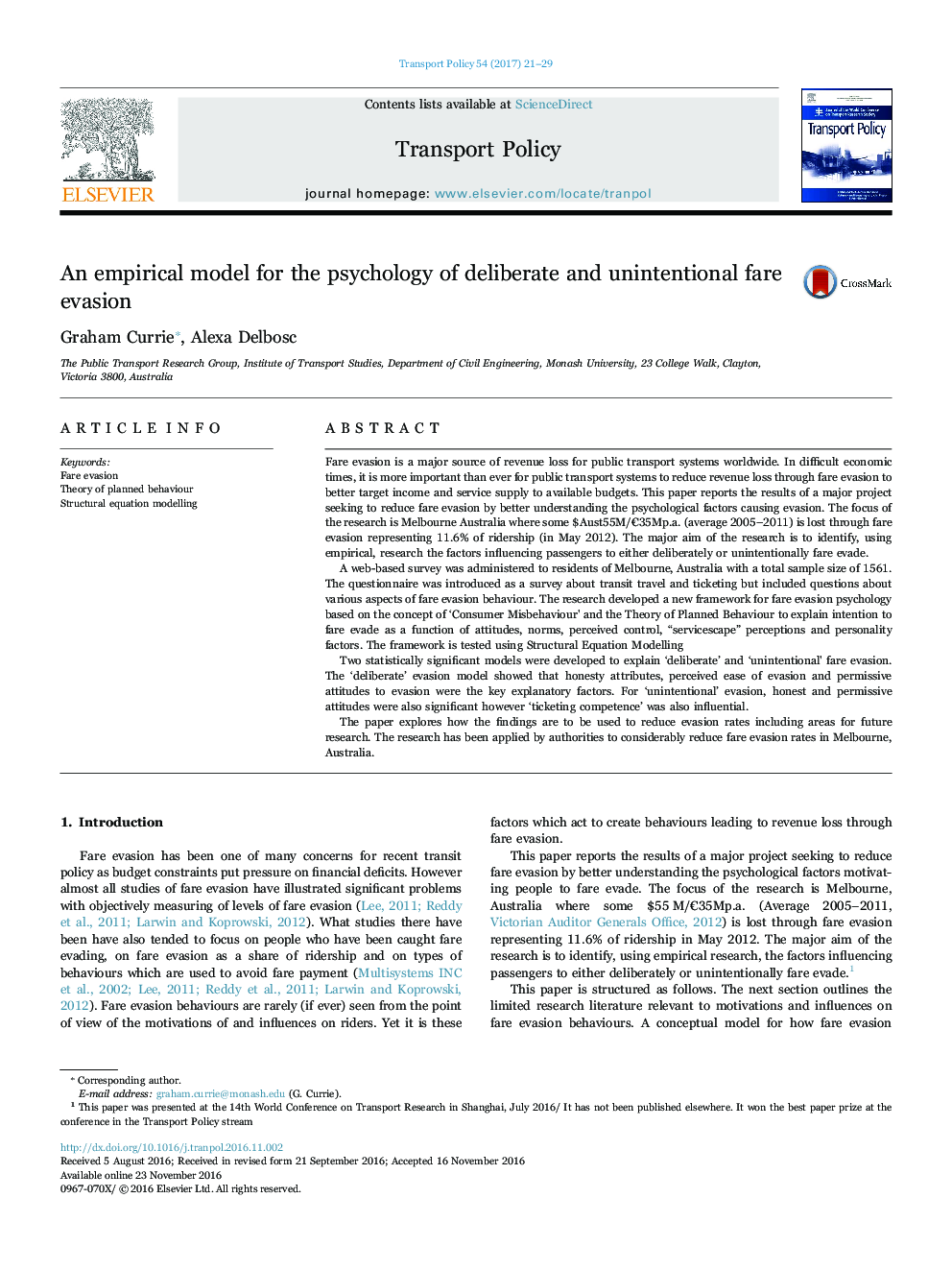| کد مقاله | کد نشریه | سال انتشار | مقاله انگلیسی | نسخه تمام متن |
|---|---|---|---|---|
| 5119099 | 1485823 | 2017 | 9 صفحه PDF | دانلود رایگان |
- Research aim is to measure factors influencing passengers to either deliberately or unintentionally fare evade.
- Fare evasion psychology framework developed on the concept of 'Consumer Misbehaviour' and the Theory of Planned Behaviour.
- Framework tested empirically using a web-based survey and Structural Equation Modelling identifies 2 significant models.
- 'Deliberate' evasion is driven by honesty attributes, perceived ease of evasion and permissive attitudes to evasion.
- 'Unintentional' evasion is driven by honesty, permissive attitudes and 'ticketing competence'.
Fare evasion is a major source of revenue loss for public transport systems worldwide. In difficult economic times, it is more important than ever for public transport systems to reduce revenue loss through fare evasion to better target income and service supply to available budgets. This paper reports the results of a major project seeking to reduce fare evasion by better understanding the psychological factors causing evasion. The focus of the research is Melbourne Australia where some $Aust55M/â¬35Mp.a. (average 2005-2011) is lost through fare evasion representing 11.6% of ridership (in May 2012). The major aim of the research is to identify, using empirical, research the factors influencing passengers to either deliberately or unintentionally fare evade.A web-based survey was administered to residents of Melbourne, Australia with a total sample size of 1561. The questionnaire was introduced as a survey about transit travel and ticketing but included questions about various aspects of fare evasion behaviour. The research developed a new framework for fare evasion psychology based on the concept of 'Consumer Misbehaviour' and the Theory of Planned Behaviour to explain intention to fare evade as a function of attitudes, norms, perceived control, “servicescape” perceptions and personality factors. The framework is tested using Structural Equation ModellingTwo statistically significant models were developed to explain 'deliberate' and 'unintentional' fare evasion. The 'deliberate' evasion model showed that honesty attributes, perceived ease of evasion and permissive attitudes to evasion were the key explanatory factors. For 'unintentional' evasion, honest and permissive attitudes were also significant however 'ticketing competence' was also influential.The paper explores how the findings are to be used to reduce evasion rates including areas for future research. The research has been applied by authorities to considerably reduce fare evasion rates in Melbourne, Australia.
Journal: Transport Policy - Volume 54, February 2017, Pages 21-29
